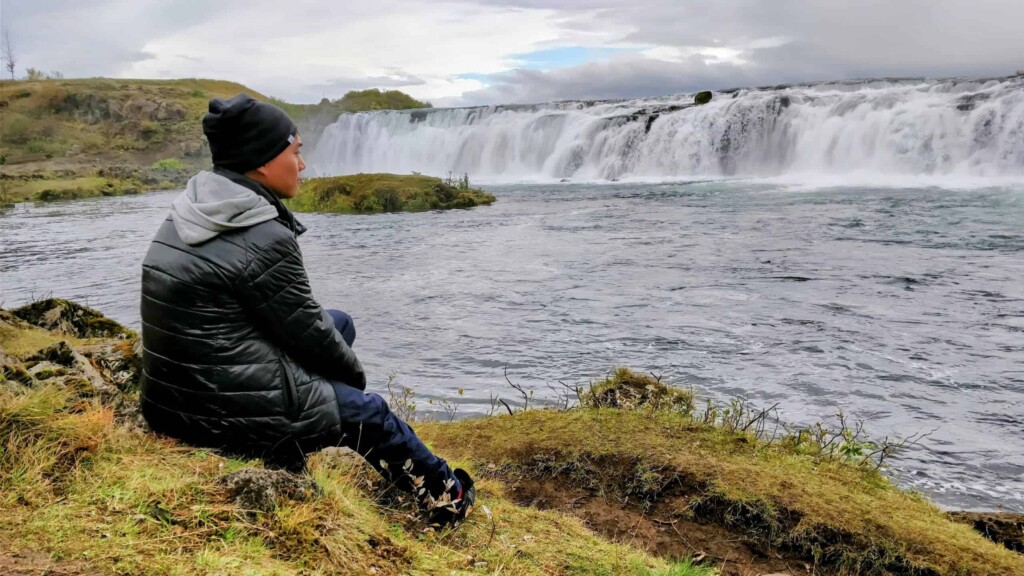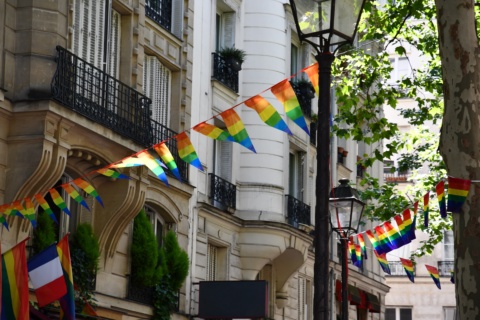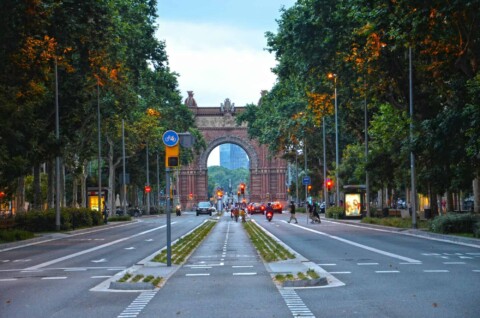Travel has the extraordinary power to transform us. It opens our minds, broadens our perspectives, and creates connections that transcend borders and cultures. However, with this privilege comes responsibility. In an increasingly connected world where tourism significantly impacts local communities, economies, and environments, the way we travel matters more than ever before.
The concept of being a “perfect traveler” isn’t about achieving an impossible standard of flawlessness. Instead, it’s about approaching travel with intentionality, respect, and mindfulness. It’s about recognizing that every destination we visit is someone’s home, every culture we encounter deserves reverence, and every environment we explore requires protection for future generations.
In recent years, the tourism industry has witnessed both remarkable growth and concerning challenges. While travel creates jobs, fosters cultural exchange, and drives economic development, it can also lead to overtourism, environmental degradation, and cultural commodification when not approached thoughtfully. This is where the role of the conscious traveler becomes crucial.
The following ten principles will guide you toward becoming not just a tourist who visits places, but a traveler who truly experiences them while leaving a positive impact. These tips will help you navigate the delicate balance between satisfying your wanderlust and being a responsible global citizen.
1. Research Your Destination: The Foundation of Respectful Travel
Before you embark on your trip, take substantial time to research your destination thoroughly. This goes far beyond checking the weather forecast or finding the best restaurants on social media. Deep research involves understanding the historical context, political climate, social dynamics, and cultural nuances that shape the place you’re about to visit.
Start by learning about the local customs, traditions, and etiquette that govern daily life. Every culture has unwritten rules about appropriate behavior, social interactions, and respect for personal space. For instance, in many Middle Eastern countries, showing the sole of your foot is considered deeply offensive, while in Japan, blowing your nose in public is seen as rude. Understanding these nuances before you arrive demonstrates respect and helps you avoid inadvertent cultural missteps.
Helpful Resources for Cultural Research:
- Cultural Detective – In-depth cultural guides and etiquette information
- Country Reports by Culture Crossing – Comprehensive cultural guides for over 100 countries
- Executive Planet – Business etiquette and cultural norms worldwide
- Lonely Planet’s Cultural Guidelines – Cultural tips integrated with travel information
Delve into the destination’s history to gain context for what you’ll see and experience. Understanding the colonial past of a country, its struggle for independence, or its cultural evolution will enrich your appreciation of monuments, museums, and local stories. This knowledge transforms a simple sightseeing trip into a meaningful cultural immersion.
Research current events and social issues affecting your destination. Are there ongoing political tensions? Environmental challenges? Social movements? Being aware of these realities helps you travel more sensitively and engage in more meaningful conversations with locals who may want to share their perspectives.
Additionally, familiarize yourself with local holidays, festivals, and important dates. Planning your trip around these events can either enhance your experience if you want to participate, or help you avoid crowds and closures if you prefer a quieter visit. Understanding the religious calendar is particularly important, as it affects everything from business hours to dress codes.
Additional Research Resources:
- CIA World Factbook – Comprehensive country information including history, politics, and demographics
- TimeandDate.com – Global holiday and festival calendars
- BBC Country Profiles – Current events and background information by region
2. Pack Light: The Art of Minimalist Travel
Traveling with a heavy suitcase is more than just an inconvenience; it’s a barrier to authentic travel experiences. When you pack light, you gain freedom, flexibility, and the ability to be spontaneous. You can navigate cobblestone streets more easily, hop on public transportation without struggle, and even change accommodations on short notice if needed.
The philosophy of packing light begins with understanding the difference between wants and needs. Most travelers pack for every possible scenario, ending up with clothes they never wear. Instead, focus on versatile pieces that can be mixed, matched, and layered. Choose items that can transition from day to night, casual to semi-formal, and different weather conditions.
Invest in quality travel gear that serves multiple purposes. A good travel jacket might be waterproof, windproof, and have multiple pockets for organization. Merino wool clothing naturally resists odors and can be worn multiple times between washes. Compression packing cubes help organize your belongings and maximize space.
Consider the laundry facilities available at your destination. In many places, laundry services are affordable and convenient, making it unnecessary to pack clothes for every day of your trip. This approach also leaves room in your luggage for meaningful souvenirs rather than forcing you to leave behind items you’ve grown attached to during your travels.
Packing light also has environmental benefits. Less weight means lower fuel consumption in transportation, and fewer items often mean less consumption overall. It encourages you to make thoughtful choices about what you truly need versus what marketing tells you you should have.
Packing Resources:
- OneBag Subreddit – Community dedicated to minimalist travel packing
- Her Packing List – Comprehensive packing guides for various destinations and trip types
- Travel Fashion Girl Packing Lists – Climate-specific packing advice with outfit planning
3. Dress Appropriately: Cultural Sensitivity Through Clothing Choices
Your clothing choices while traveling serve as a form of non-verbal communication, instantly conveying your attitude toward the local culture. Dressing appropriately shows respect for local customs and helps you navigate social situations more smoothly while avoiding unwanted attention or cultural offense.
Research the dress codes specific to your destination, considering both general cultural norms and specific requirements for religious sites, government buildings, or cultural attractions. In many conservative societies, modest dress is expected, particularly for women. This might mean covering shoulders, legs, or hair in certain contexts. However, modesty requirements aren’t limited to conservative countries; even in liberal societies, certain venues or occasions call for specific dress standards.
Consider the practical aspects of appropriate dress as well. In tropical climates, lightweight, breathable fabrics that cover the skin can actually provide better protection from the sun and insects than revealing clothing. In cold climates, understanding local winter wear helps you stay comfortable while looking like you belong.
Pay attention to color symbolism in different cultures. While white is associated with purity in Western cultures, it’s associated with mourning in some Asian cultures. Bright colors might be celebrated in one culture while being considered inappropriate or flashy in another.
Footwear deserves special consideration. Many religious sites require shoe removal, so slip-on shoes are practical. In some cultures, flip-flops are considered too casual for most situations. Comfortable walking shoes that look presentable will serve you well in most destinations.
Remember that dressing appropriately doesn’t mean you need to adopt local traditional dress unless specifically invited to do so. The goal is respectful integration, not cultural appropriation. A good rule of thumb is to dress slightly more conservatively than you might at home, erring on the side of respect.
4. Learn Basic Phrases: The Universal Language of Respect
Language learning, even at a basic level, represents one of the most meaningful investments you can make in your travel experience. While English has become a global lingua franca, making the effort to communicate in the local language demonstrates respect and often opens doors that remain closed to monolingual travelers.
Start with essential phrases that you’ll use daily: greetings, please, thank you, excuse me, and goodbye. These basic courtesies can transform interactions from transactional exchanges to warm human connections. Local people often appreciate the effort more than they care about perfect pronunciation or grammar.
Learn practical phrases related to your immediate needs: asking for directions, ordering food, requesting help, and handling emergencies. Having these phrases readily available reduces stress and increases your independence as a traveler. It also shows locals that you’re making an effort to engage with their culture rather than expecting them to accommodate you entirely.
Understanding numbers is particularly valuable for shopping, transportation, and general navigation. Being able to understand prices, addresses, and times in the local language helps you avoid misunderstandings and potential overcharging.
Use language learning apps, phrase books, or even simple flashcards to practice before and during your trip. Many apps now offer offline functionality, making them valuable resources when you don’t have internet access. Don’t be afraid to make mistakes; most locals are patient and appreciative of your efforts.
Consider learning a few phrases that go beyond the utilitarian. Compliments about the local food, expressions of appreciation for the culture, or simple conversation starters can lead to memorable interactions and perhaps even friendships.
Language Learning Resources:
- Duolingo – Free language learning app with offline capabilities
- Google Translate – Instant translation with camera and offline features
- Babbel – Conversation-focused language learning platform
- iTranslate Voice – Real-time voice translation app
- TripLingo – Travel-specific phrase learning with cultural notes
5. Be Mindful of Your Surroundings: Situational Awareness and Cultural Sensitivity
Mindful travel requires constant awareness of your environment, behavior, and impact on the places and people around you. This awareness extends beyond personal safety to encompass cultural sensitivity, environmental consciousness, and social respect.
Observe local behavior patterns and social norms before jumping into interactions. Notice how people greet each other, their personal space preferences, their volume levels in public spaces, and their general demeanor. Mirroring these behaviors helps you blend in and shows respect for local customs.
Be aware of your visibility as a foreigner and the potential implications. In some places, tourists are viewed as wealthy regardless of their actual financial situation, which can affect interactions and pricing. Understanding this dynamic helps you navigate situations more effectively and avoid potential problems.
Pay attention to photography etiquette, which varies significantly across cultures. Some people, particularly in traditional communities, may not want their photos taken. Always ask permission before photographing people, and respect their decision if they decline. Be aware that some religious sites, government buildings, or cultural ceremonies prohibit photography entirely.
Consider your behavior in sacred or culturally significant spaces. Maintain appropriate noise levels, follow designated paths, and observe any specific rules or rituals. Remember that these spaces often hold deep meaning for local communities, and your presence should honor that significance.
Be mindful of your environmental impact in sensitive ecosystems. Follow designated trails, don’t disturb wildlife, and avoid touching or removing natural artifacts. Many destinations struggle with the cumulative impact of tourism on their natural environments.
Cultural Awareness Resources:
- Country-Specific Travel Advisories – U.S. State Department safety and cultural information
- World Nomads Travel Safety Hub – Destination-specific safety and cultural guidance
- Culture Trip – Cultural insights and local perspectives by destination
6. Support Local Businesses: Economic Empowerment Through Conscious Spending
Your spending choices as a traveler have the power to directly impact local communities and economies. By consciously choosing local businesses over international chains, you ensure that your tourism dollars benefit the people who call your destination home.
Seek out locally-owned restaurants that serve traditional cuisine prepared by local cooks. These establishments often provide more authentic culinary experiences while supporting local farmers, suppliers, and employees. The money you spend stays within the community rather than flowing to corporate headquarters in distant countries.
Choose accommodations owned and operated by locals when possible. This might mean staying in family-run guesthouses, boutique hotels owned by residents, or participating in homestay programs. These options often provide more personalized experiences and cultural insights while directly benefiting local families.
Shop at local markets, artisan workshops, and independent stores rather than tourist shops selling mass-produced souvenirs. This approach supports traditional crafts and skills while ensuring you bring home truly unique items with authentic cultural significance. Many local artisans rely on tourist purchases to maintain traditional practices that might otherwise disappear.
Use local transportation services, tour guides, and activity providers. Local guides often provide insights and access that large tour companies cannot match, while your payment directly supports local expertise and knowledge sharing.
Consider the broader economic impact of your choices. Multinational chains may offer familiar comfort and standardized service, but they also extract profits from local economies. Local businesses, while they may operate differently than what you’re accustomed to, contribute to the economic diversity and cultural authenticity that makes destinations unique.
Supporting Local Business Resources:
- Airbnb Experiences – Local-hosted activities and tours
- EatWith – Home dining experiences with local hosts
- Fair Trade Tourism – Directory of ethical tourism operators
- Local Market Finder Apps – Find local markets and authentic dining experiences
7. Follow Local Laws and Regulations: Legal Compliance and Cultural Respect
Familiarizing yourself with local laws and regulations is essential for both legal compliance and cultural respect. What may be legal or socially acceptable in your home country might be prohibited or frowned upon in your destination, and ignorance is rarely accepted as an excuse.
Research traffic laws and transportation regulations, especially if you plan to drive or ride motorcycles or bicycles. Traffic patterns, right-of-way rules, and safety requirements vary significantly between countries. Understanding these rules prevents accidents and legal troubles while showing respect for local infrastructure and safety standards.
Understand cultural and religious restrictions that may be codified into law. Some countries have strict laws about alcohol consumption, public displays of affection, or appropriate dress in public spaces. These laws often reflect deeply held cultural or religious values, and violations can result in serious legal consequences.
Learn about environmental regulations, particularly in ecologically sensitive areas. Many destinations have specific rules about wildlife interaction, waste disposal, camping, and resource use. These regulations exist to protect fragile ecosystems that could be damaged by uninformed tourist behavior.
Be aware of photography and media restrictions. Some countries prohibit photographing government buildings, military installations, or certain cultural sites. Others have strict rules about sharing images on social media. Understanding these restrictions prevents legal troubles and shows respect for national security and cultural privacy concerns.
Research customs and immigration requirements thoroughly. Understand what items you can and cannot bring into the country, visa requirements, and departure procedures. Proper preparation prevents delays, confiscation of items, or legal complications that could ruin your trip.
Legal and Safety Resources:
- Know Before You Go (CBP) – U.S. customs and border information
- VisaHQ – Visa requirements and application assistance
- International Association for Medical Assistance to Travellers – Country-specific health and legal information
- Smart Traveler Enrollment Program (STEP) – U.S. government travel registration and alerts
8. Be Open-Minded: Embracing Difference as an Opportunity for Growth
Open-mindedness is perhaps the most valuable trait a traveler can cultivate. It transforms potentially challenging situations into learning opportunities and allows you to fully experience the richness of different cultures and perspectives.
Challenge your preconceived notions and stereotypes about your destination. Media representations, cultural assumptions, and secondhand stories often provide incomplete or inaccurate pictures of places and people. Approach your destination with curiosity rather than judgment, ready to have your assumptions challenged and corrected.
Embrace different approaches to time, efficiency, and problem-solving. What might seem inefficient or frustrating from your cultural perspective may reflect different values and priorities that are equally valid. Instead of becoming frustrated with different systems, try to understand the logic and values that inform them.
Be willing to step outside your comfort zone regarding food, activities, and social interactions. Some of the most memorable travel experiences come from saying “yes” to opportunities that initially seem intimidating or unfamiliar. However, maintain personal safety and health boundaries while being open to new experiences.
Practice cultural relativism—the ability to understand behaviors and beliefs within their cultural context rather than judging them by your own cultural standards. This doesn’t mean you need to abandon your own values, but rather that you can appreciate different approaches to life and society.
Listen more than you speak, especially when locals share their perspectives about their culture, history, or current events. Their insights provide invaluable context that no guidebook can offer. Ask questions that come from genuine curiosity rather than making statements based on limited experience.
Open-Minded Travel Resources:
- Couchsurfing – Connect with locals for cultural exchange (not just accommodation)
- Meetup – Find local events and communities in your destination
- Workaway – Volunteer opportunities for cultural immersion
- Cultural Orientation Resource Center – Cross-cultural communication guides
9. Practice Responsible Tourism: Sustainable Travel for Future Generations
Responsible tourism recognizes that travel should benefit both travelers and destinations while minimizing negative impacts on environments, cultures, and communities. This approach ensures that the places we love to visit remain vibrant and accessible for future generations.
Choose environmentally sustainable transportation options when possible. This might mean selecting direct flights to reduce carbon emissions, using public transportation instead of private vehicles, or even incorporating overland travel into your itinerary. When flying is necessary, consider purchasing carbon offsets through reputable programs.
Support conservation efforts and sustainable tourism initiatives at your destination. Many communities have developed tourism programs that directly fund conservation efforts, community development, or cultural preservation. Participating in these programs ensures your visit contributes positively to local priorities.
Avoid activities that exploit wildlife or contribute to animal suffering. This includes avoiding elephant rides, dolphin encounters, and other activities that may seem harmless but often involve animal abuse or contribute to illegal wildlife trade. Research tour operators carefully to ensure they follow ethical practices.
Be conscious of your resource consumption, particularly in destinations where water, electricity, or other resources are scarce. Simple actions like taking shorter showers, reusing towels, and turning off lights and air conditioning when not in your room can significantly reduce your environmental footprint.
Choose accommodations and tour operators that demonstrate genuine commitment to sustainability rather than those that simply engage in “greenwashing.” Look for certifications from recognized sustainable tourism organizations and evidence of concrete environmental and social initiatives.
Sustainable Tourism Resources:
- Global Sustainable Tourism Council – Certification standards and directory of sustainable operators
- Responsible Travel – Curated sustainable tour operators and accommodations
- Green Key International – Environmental certification for accommodations
- Tread Right Foundation – Sustainable travel tips and certified operators
- Carbon Offset Calculators – Calculate and offset your travel emissions
10. Leave No Trace: Preserving Beauty for Future Travelers
The principle of “leaving no trace” extends beyond wilderness camping to encompass all forms of travel. It means traveling in a way that preserves the natural beauty, cultural integrity, and social fabric of destinations for future visitors and, more importantly, for the people who call these places home.
Practice proper waste disposal and minimize waste generation. Carry reusable water bottles, bags, and utensils to reduce single-use plastic consumption. Dispose of waste only in designated areas and follow local recycling guidelines. In some destinations, taking your trash with you until you find proper disposal facilities may be necessary.
Respect natural environments by staying on designated trails, not disturbing wildlife, and avoiding the removal of natural artifacts like rocks, shells, or plants. These seemingly small actions, when multiplied by thousands of visitors, can significantly impact fragile ecosystems.
Show respect for cultural and historical sites by following all rules and guidelines. Don’t touch artifacts, climb on restricted structures, or remove items as souvenirs. These sites are irreplaceable cultural heritage that belongs to all humanity, and their preservation requires the cooperation of every visitor.
Be mindful of your digital footprint and its potential impact. Geotagging sensitive locations on social media can lead to overtourism and environmental damage. Consider the implications of sharing location information for fragile or off-the-beaten-path destinations.
Leave places better than you found them when possible. This might mean participating in beach cleanups, supporting local conservation projects, or simply being more considerate than previous visitors. Small positive actions can make a significant cumulative difference.
Leave No Trace Resources:
- Leave No Trace Principles – Official outdoor ethics guidelines
- Pack It In, Pack It Out Guide – National Park Service waste management guidelines
- Reef-Safe Sunscreen Guide – Protect marine ecosystems
- Plastic Free July – Reducing single-use plastics while traveling
Conclusion: The Journey Toward Conscious Travel
Being a perfect traveler isn’t about achieving an impossible standard of flawlessness, but about approaching travel with intention, respect, and mindfulness. It’s about recognizing that travel is a privilege that comes with responsibilities to the places we visit, the people we encounter, and the planet we all share.
These ten principles provide a framework for conscious travel, but they’re just the beginning. Each destination presents unique challenges and opportunities for respectful engagement. The key is to approach each journey with humility, curiosity, and a genuine desire to contribute positively to the places and communities you visit.
Remember that cultural competence and travel wisdom develop over time through experience, mistakes, and continuous learning. Every trip offers opportunities to refine your approach and deepen your understanding of what it means to be a responsible global citizen.
Travel has the power to break down barriers, challenge prejudices, and create connections that transcend borders. When approached thoughtfully, it can be a force for positive change in both travelers and destinations. By following these principles, you become part of a growing movement of conscious travelers who understand that how we travel is just as important as where we go.
The world is full of incredible destinations, fascinating cultures, and welcoming people eager to share their stories. By traveling responsibly, we ensure that these treasures remain available for future generations while creating meaningful experiences that enrich our own lives and contribute to global understanding.
So pack your bags with intention, keep these principles close to your heart, and embark on your journey toward becoming not just a tourist who visits places, but a traveler who truly experiences them while leaving a positive impact. The world is waiting, and when approached with respect and mindfulness, it will reward you with experiences beyond your imagination.
Happy travels, and may your journeys contribute to a more connected, understanding, and sustainable world for all.
Additional Resources for Conscious Travel
Comprehensive Travel Planning:
- Nomadic Fanatic – Sustainable travel guides and community
- Atlas Obscura – Unique, off-the-beaten-path destinations
- Travel + Leisure’s Sustainable Travel Guide – Ongoing sustainable travel content
Emergency and Safety:
- International SOS – Global health and security assistance
- Travel Insurance Comparison – Compare travel insurance policies
- Emergency Contact Apps – Emergency contact information for travelers
Cultural Exchange Programs:
- People to People International – Cultural exchange opportunities
- Sister Cities International – Connect with sister cities worldwide
- Global Entry – Expedited border crossing for frequent travelers








